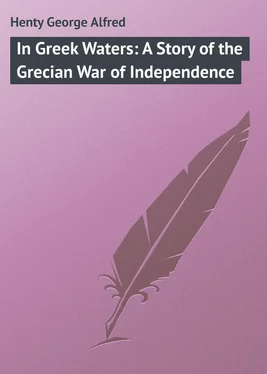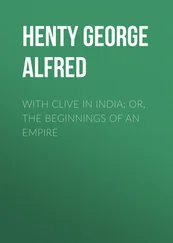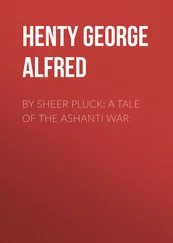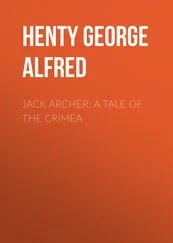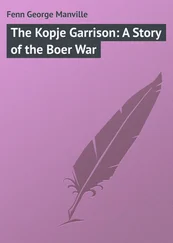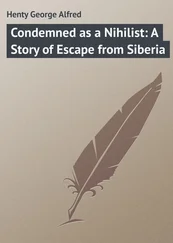George Henty - In Greek Waters - A Story of the Grecian War of Independence
Здесь есть возможность читать онлайн «George Henty - In Greek Waters - A Story of the Grecian War of Independence» — ознакомительный отрывок электронной книги совершенно бесплатно, а после прочтения отрывка купить полную версию. В некоторых случаях можно слушать аудио, скачать через торрент в формате fb2 и присутствует краткое содержание. Жанр: foreign_prose, foreign_children, на английском языке. Описание произведения, (предисловие) а так же отзывы посетителей доступны на портале библиотеки ЛибКат.
- Название:In Greek Waters: A Story of the Grecian War of Independence
- Автор:
- Жанр:
- Год:неизвестен
- ISBN:нет данных
- Рейтинг книги:4 / 5. Голосов: 1
-
Избранное:Добавить в избранное
- Отзывы:
-
Ваша оценка:
- 80
- 1
- 2
- 3
- 4
- 5
In Greek Waters: A Story of the Grecian War of Independence: краткое содержание, описание и аннотация
Предлагаем к чтению аннотацию, описание, краткое содержание или предисловие (зависит от того, что написал сам автор книги «In Greek Waters: A Story of the Grecian War of Independence»). Если вы не нашли необходимую информацию о книге — напишите в комментариях, мы постараемся отыскать её.
In Greek Waters: A Story of the Grecian War of Independence — читать онлайн ознакомительный отрывок
Ниже представлен текст книги, разбитый по страницам. Система сохранения места последней прочитанной страницы, позволяет с удобством читать онлайн бесплатно книгу «In Greek Waters: A Story of the Grecian War of Independence», без необходимости каждый раз заново искать на чём Вы остановились. Поставьте закладку, и сможете в любой момент перейти на страницу, на которой закончили чтение.
Интервал:
Закладка:
“I suppose, Horace, you are following with interest the course of events in Thessaly?”
“Well, father, we see the papers of course. There seems to be a row going on there; they are always fighting about something. From what I could understand of it, Ali Pasha of Janina has revolted against the Sultan, and the Turks are besieging him. What sort of a chap is he? He is an Albanian, isn’t he?”
“Yes, with all the virtues and vices of his race – ambitious, avaricious, revengeful, and cruel, but brave and astute. He has been the instrument of the Porte in breaking down the last remnants of independence in the wide districts he rules. As you know, very many of the Christian and Mussulman villages possessed armed guards called armatoli, who are responsible not only for the safety of the village, but for the security of the roads; the defence of the passes was committed to them, and they were able to keep the numerous bands of brigands within moderate bounds. This organization Ali Pasha set himself to work to weaken as soon as he came into power. He played off one party against the other – the Mussulmans against the Christians, the brigands against the armatoli, one powerful chief against another. He crushed the Suliots, who possessed a greater amount of independence, perhaps, than any of the other tribes, and who, it must be owned, were a scourge to all their neighbours. He took away all real power from the armatoli, crippled the Mussulman communities as well as weakened the Christian villages; inspired terror in the whole population by the massacre of such as resisted his will, and those whom he could not crush by force he removed by poison; finally, he became so strong that it was evident his design was to become altogether independent of the Sultan. But he miscalculated his power, his armies fled almost without striking a blow; his sons, who commanded them, are either fugitives or prisoners; and now we hear that he is besieged in his fortress, which is capable of withstanding a very long siege.”
“He must be a thorough old scoundrel, I should say, father.”
“Yes,” Mr. Beveridge assented somewhat unwillingly. “No doubt he is a bad man, Horace; but he might have been – he may even yet be, useful to Greece. When it first became evident that matters would come to a struggle between him and the Porte he issued proclamations calling upon the Christians to assist him and make common cause against the Turks, and specially invited Greece to declare her independence of Turkey, and to join him.”
“But I should say, father, the Albanians would be even worse masters than the Turks.”
“No doubt, Horace, no doubt. The Turks, I may own, have not on the whole been hard masters to the Christians. They are much harder upon the Mussulman population than upon the Christian, as the latter can complain to the Russians, who, as their co-religionists, claim to exercise a special protection over them. But, indeed, all the Christian powers give protection, more or less, to the Christian Greeks, who, especially in the Morea, have something approaching municipal institutions, and are governed largely by men chosen by themselves. Therefore the pashas take good care not to bring trouble on themselves or the Porte by interfering with them so long as they pay their taxes, which are by no means excessive; while the Mussulman part of the population, having no protectors, are exposed to all sorts of exactions, which are limited only by the fear of driving them into insurrection. Still this rebellion of Ali Pasha has naturally excited hopes in the minds of the Greeks and their friends that some results may arise from it, and no better opportunity is likely to occur for them to make an effort to shake off the yoke of the Turks. You may imagine, Horace, how exciting all this is to one who, like myself, is the son of a Greek mother, and to whom, therefore, the glorious traditions of Greece are the story of his own people. As yet my hopes are faint, but there is a greater prospect now than there has been for the last two hundred years, and I would give all I am worth in the world to live to see Greece recover her independence.”
CHAPTER IV
A STARTLING PROPOSAL
AFTERHorace returned to Eton, remembering the intense interest of his father in the affairs of Greece, he read up as far as he could everything relating to late events there. That he should obtain a really fair view of the situation was impossible. The Greeks had countrymen in every commercial city in the world; they were active and intelligent, and passionately desirous of interesting Europe in their cause. Upon the other hand the Turks were voiceless. Hence Europe only heard the Greek version of the state of affairs; their wrongs were exaggerated and events distorted with an utter disregard for truth, while no whisper of the other side of the question was ever heard.
At that time the term Greek was applied to persons of Greek religion rather than of Greek nationality. The population of European Turkey, of pure Greek blood, was extremely small, while those who held the Greek form of religion were very numerous, and the influence possessed by them was even greater. The Christians were in point of intelligence, activity, and wealth superior to the Turks. They were subservient and cringing when it suited their purpose, and were as a rule utterly unscrupulous. The consequence was that they worked their way into posts of responsibility and emolument in great numbers, being selected by the Porte in preference to the duller and less pushing Turks. In some portions of European Turkey they were all-powerful: in the Transylvanian provinces of Moldavia and Wallachia every post was held by Greeks, and there were but a few small and scattered Turkish garrisons. Yet here the population were incomparably more cruelly fleeced and ground down by their Greek masters than were the Christians in the more Turkish provinces.
In Servia and parts of Bulgaria the numbers were more even, but here also the Greeks held most of the responsible posts. In Greece proper the Christians vastly predominated, while in Northern Thessaly the numbers of the Christians and Mussulmans were about the same.
The Greek metropolitan of Constantinople and his council exercised a large authority by means of the bishops and priests over the whole Christian population, while for some time a secret society named the Philike Hetaireia had been at work preparing them for a rising. It was started originally among the Greeks at Odessa, and was secretly patronized by Russia, which then, as since, had designs upon Constantinople.
The first outbreak had occurred in March, 1821, when Prince Alexander Hypsilantes, who had been an officer in the Russian service, crossed the Pruth, and was joined by the Greek officials and tax-gatherers of the Transylvanian provinces. He was a vain, empty-headed, and utterly incompetent adventurer. A small band of youths belonging to good families enrolled themselves under the title of the Sacred Band, and the army also joined him, but beyond the cold-blooded massacre of a considerable number of Turks and their families he did absolutely nothing. The main body of the population, who bitterly hated their Greek oppressors, remained quiescent. Russia, seeing his utter incapacity, repudiated him, and after keeping alive the hopes of his followers by lying proclamations Hypsilantes secured his own safety by flight across the Austrian frontier when the Turkish army approached. The five hundred young men of the Sacred Battalion fought nobly and were killed almost to a man; but with the exception of a band of officers who refused to surrender, and shut themselves up in Skulani and in the monastery of Seko and there defended themselves bravely until the last, no resistance was offered to the Turks, and the insurrection was stamped out by the beginning of June. But in the meantime Greece proper was rising, and though the news came but slowly Horace saw that his father’s hopes were likely to be gratified, and that the Greeks would probably strike a blow at least for national independence, and he more than shared the general excitement that the news caused among educated men throughout Europe.
Читать дальшеИнтервал:
Закладка:
Похожие книги на «In Greek Waters: A Story of the Grecian War of Independence»
Представляем Вашему вниманию похожие книги на «In Greek Waters: A Story of the Grecian War of Independence» списком для выбора. Мы отобрали схожую по названию и смыслу литературу в надежде предоставить читателям больше вариантов отыскать новые, интересные, ещё непрочитанные произведения.
Обсуждение, отзывы о книге «In Greek Waters: A Story of the Grecian War of Independence» и просто собственные мнения читателей. Оставьте ваши комментарии, напишите, что Вы думаете о произведении, его смысле или главных героях. Укажите что конкретно понравилось, а что нет, и почему Вы так считаете.
